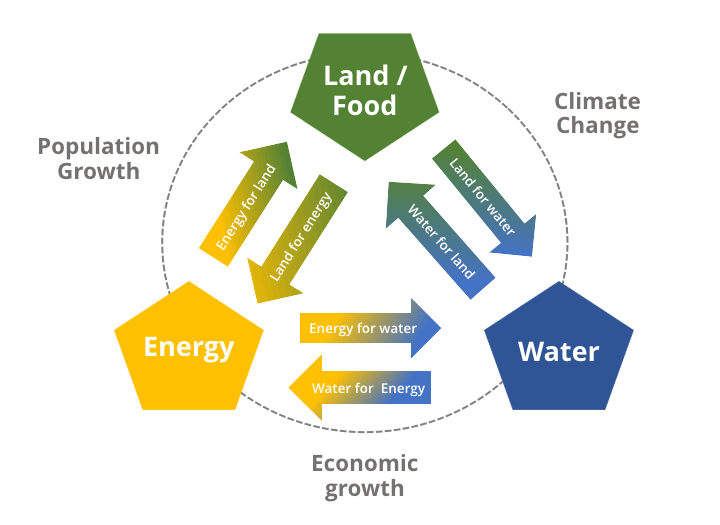About
The challenge
Improving and sustaining human welfare is not an easy task in a world that is expected to see continued population and economic growth in the future.
Looking ahead to 2050, it is projected that up to 70% more food production will be required globally, with a larger increase expected in developing countries. Electricity generation is expected to double as we achieve universal access to energy. With increasing energy and food demands on top of population growth, water demands will also rise by more than 50%, with 40% of the world’s population living under severe water stress by 2050.
The growing demands for different resources coupled with the close interlinkages among these, calls for adopting more integrated approaches when eliciting pathways to meet the water, energy and land-related development goals. This integrated approach is the so-called “nexus approach”.

The goal
In respond to this global and regional demand, the Integrated Solutions for Water Energy and Land Project (ISWEL) seeks to develop tools and capacities to support the sustainable management of water, energy and land, through the development of a truly nexus approach.
ISWEL takes a global approach, but it also focuses in on two transboundary basins facing multiple development and environmental challenges: The Indus and the Zambezi basins.
Global Assessment
Learn about ISWEL global activities.
